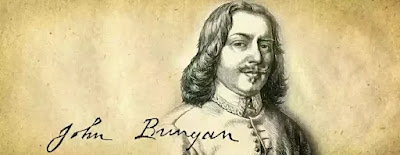Also Read
John Bunyan (1628-1688). In the domain of Restoration prose Bunyan alone contests the supremacy of Dryden. And Bunyan stands in a class by himself.
The main facts of his life are well known. He himself has given them an imperishable shape in his Grace Abounding (1666), a kind of religious autobiography. Though the statements of this book need not be taken too literally, he seems to have misspent his youth. He draws a horrible picture of his own depravity; but as religious converts are well known to delight in depicting their original wickedness in the darkest colours, this need not be taken too seriously. Bunyan, the son of a brazier, was born in Bedfordshire. He was educated at the village school, and at the age of sixteen was drafted into the Parliamentary army and saw service in the Civil War. In 1653 he joined a local Nonconformist sect in Bedford and shortly after began to preach there.
Bunyan's literary career began in 1656 with two pamphlets on the gospels, and in 1660 he was arrested as an unlicensed preacher. The next twelve years he spent in Bedford gaol, and on his release, in 1672, he obtained a licence and became pastor of a church in Bedford. This office he held until his death, although, in 1675, he spent six months in gaol when his licence was cancelled. In this second period of imprisonment he wrote the first part of The Pilgrim's Progress (published 1678), and then came The Life and Death of Mr Badnman (1680) and The Holy War (1682).
Except for Grace Abounding, all Bunyan's major works are allegorical. In each case the allegory is worked out with ease, force, and clearness. Readers of all ages enjoy the narrative, while they follow the double meaning without an effort. The allegorical personages - for example, Mr Worldly Wiseman, Mrs Diffidence, Giant Despair, Madame Wanton, My Lord Hategood, Mr Standfast - are fresh and apt, and are full of an intense interest and a raw dramatic energy. Their individual adventures combine and react with a variety that keeps the story from monotony, and yet the simple idea of a forward journey is never lost. The plot, working upon the fortunes of the different characters, gives us the nearest approach to the pure novel that had so far been effected.
The numerous natural descriptions are simply done, but they are full of a great unspoilt ability: Lastly, Bunyan's style is unique in prose. Though it is undoubtedly based upon the great Biblical models, it is quite individual. It is homely, but not vulgar; strong, but not coarse; equable, but not monotonous; it is sometimes humorous but it is never ribald; rarely pathetic, but never sentimental. It has remained the pattern of a plain style, and is one of the masterpieces of the English language.
